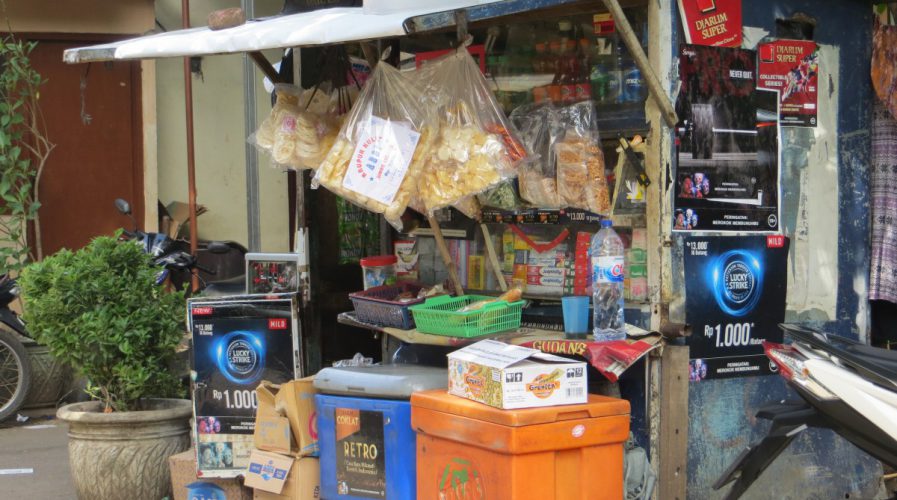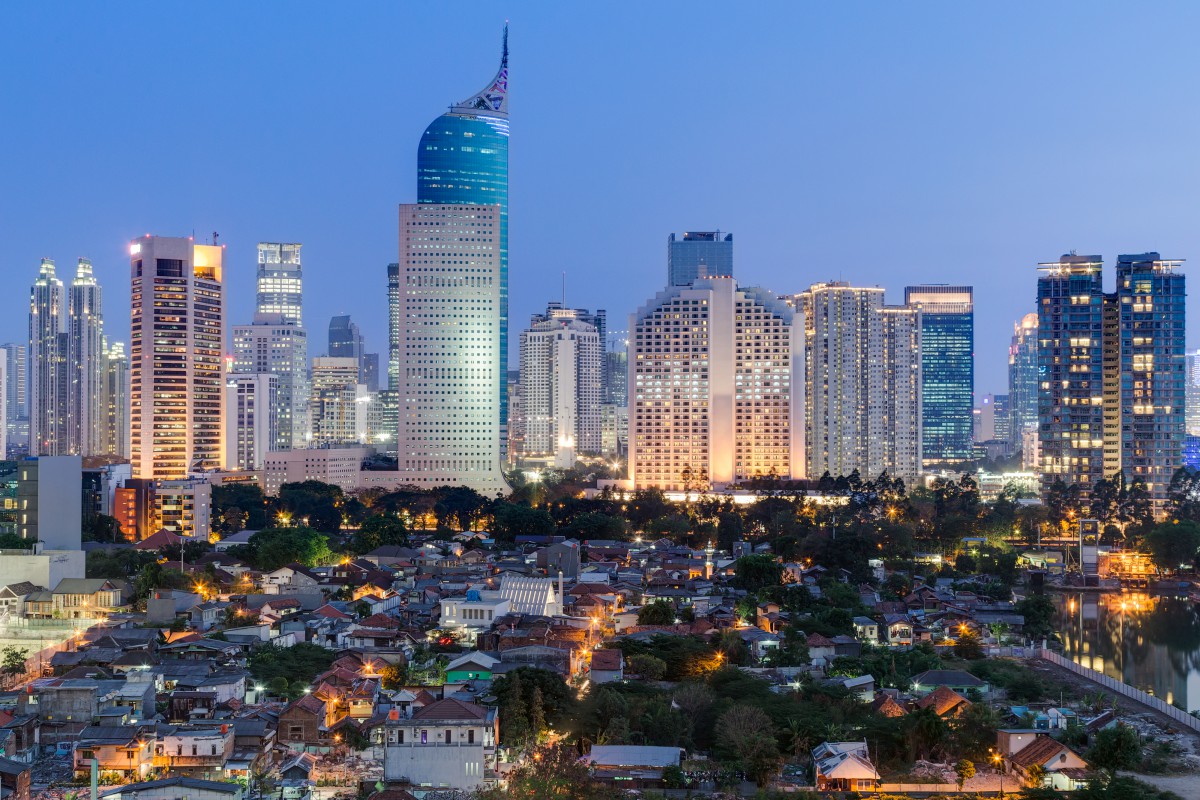
Kioson wants to hook up small warungs with the catalogs of some of the biggest e-commerce players in order to boost small business. Source: Shutterstock
Local champion Kioson might be Indonesia’s first startup IPO
INDONESIA gets consistently touted as the next great market for technology investors, so a Indonesian e-commerce startup, PT Kioson Komersial Indonesia, is going to test just how true that is with the first startup initial public offering (IPO) about to go live.
Kioson kind of works like a middleman for small, independent brick-and-mortar and roadside kiosks (warungs, for those of you in the know) looking to sell all kinds of things from mobile phone credit to airfare. Today, the company’s network spans 19,000 merchants across 300 cities, and is helping Indonesia’s e-commerce industry amidst a challenging environment where Internet penetration is still relatively low though uptake of digital services is high.
Startup Kioson bridges shoppers without bank accounts and e-commerce giants like Tokopedia https://t.co/DYigEyaDfN
— Edwin Chan (@edwininla) September 28, 2017
Kioson helps merchants access to stock by providing them with tablets loaded with its proprietary shopping app which becomes a kind of storefront for digital sellers such as Tokopedia, Lazada and so on. Buyers are able to browse within the store, place orders for cheaper options online and pay vendors in cash. It’s a model that’s worked extremely well for the huge swathes of unbanked people in Indonesia. Kioson takes a small fee per transaction, but the benefit for merchants who are able to access huge catalogs is significant.
SEE ALSO: Indonesia: Tokopedia in talks for major deal with Alibaba
Kioson recently raised IDR45 billion (US$3.4 million), which has given them the capability to begin seeking an IPO. It’s a surprising and curious story of an upstart looking for success amidst Indonesia’s startup industry which is largely dominated by huge giants, which have buy-ins from Chinese technology firms and some of the archipelagic nation’s richest families. It could potentially set the tone for future IPOs from smaller startups, which typically get edged out in the market.
Kioson sudah resmi punya kode KIOS https://t.co/OOZWVxOkiF
— Berita Emiten IDX (@Bermiten) September 27, 2017
“The market and the regulator will be watching us closely. We’re the test subject in a way,” President Director Jasin Halim said in an interview with Bloomberg at his office in Jakarta.
“We see ourselves as a bridge between e-commerce and the many people still barred from it because of difficulties in using cash for online purchases.”
SEE ALSO: Alibaba brings back old school retail with its first physical mall
Indonesian startups tend to exit the market via mergers and acquisitions which means that smaller companies usually get swallowed up by bigger firms who then gain even larger market clout. If Kioson successfully debuts, it would be a validation of President Joko Widodo’s efforts to boost startups through loosened restrictions and higher tech-focused investments.

Indonesia’s technology space is largely dominated by huge companies with buy-ins from some of the country’s richest. Source: Shutterstock/amadeustx
Widodo’s government is targeting to build a US$150 billion digital economy by 2025, and various initiatives have been put into place to support it. This includes a “technology board”, a marketplace that would be geared towards helping startup founders and investors take their companies public. However, to get there, the country has to have a robust enough startup environment that isn’t monopolized by a collusion of huge companies and has enough breathing space for medium-sized firms to have a chance.
SEE ALSO: Instagram says that Indonesia is its largest market in APAC
“It comes down to implementation, because the market is definitely there,” Jeffrey Jap, an analyst at PT Trimegah Sekuritas, said by phone to Bloomberg from Jakarta.
“While e-commerce is booming in the large cities, most of Indonesia still relies on traditional markets, so there’s potential in bringing them into the fold.”
READ MORE
- Strategies for Democratizing GenAI
- The criticality of endpoint management in cybersecurity and operations
- Ethical AI: The renewed importance of safeguarding data and customer privacy in Generative AI applications
- How Japan balances AI-driven opportunities with cybersecurity needs
- Deploying SASE: Benchmarking your approach
